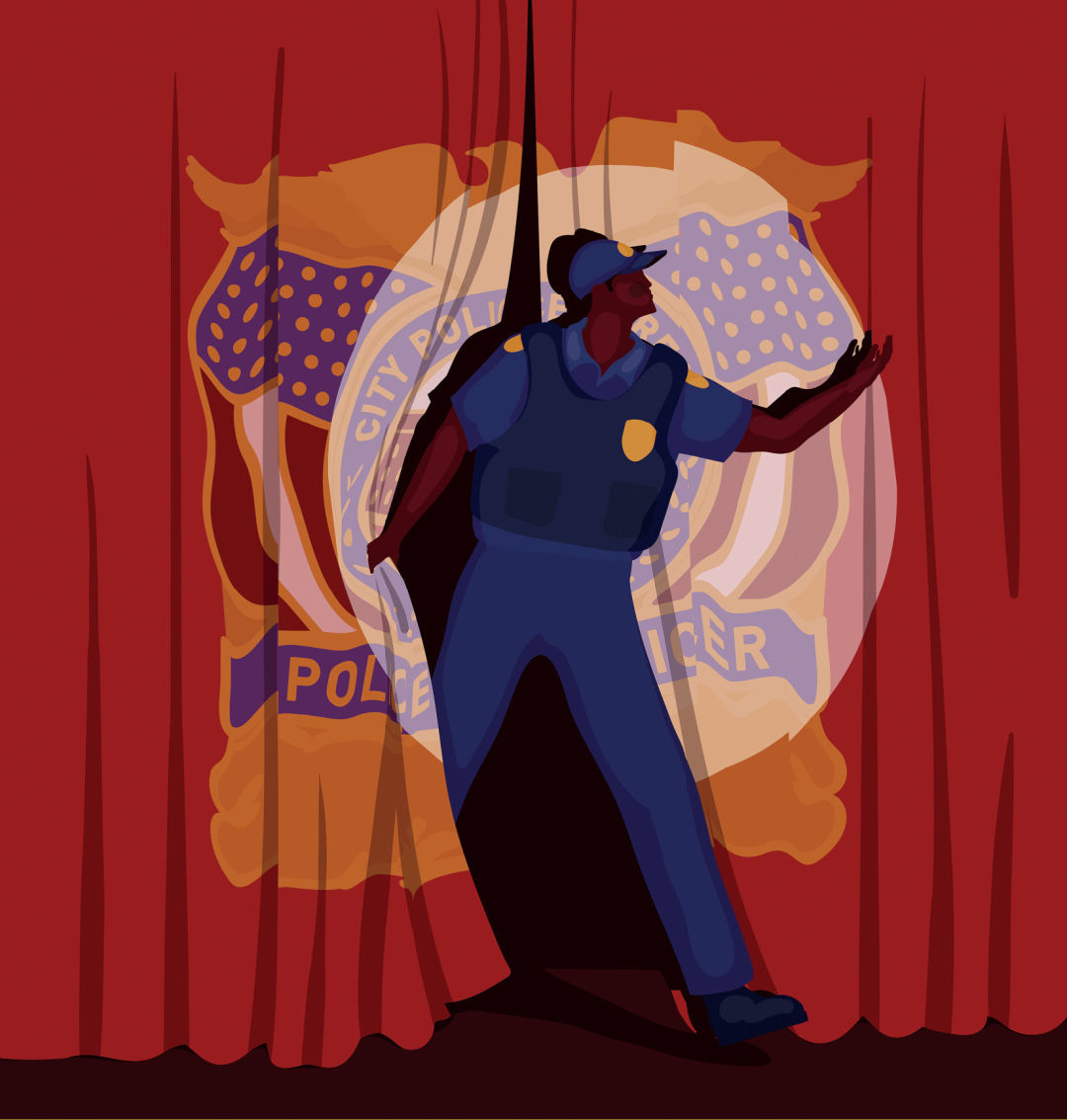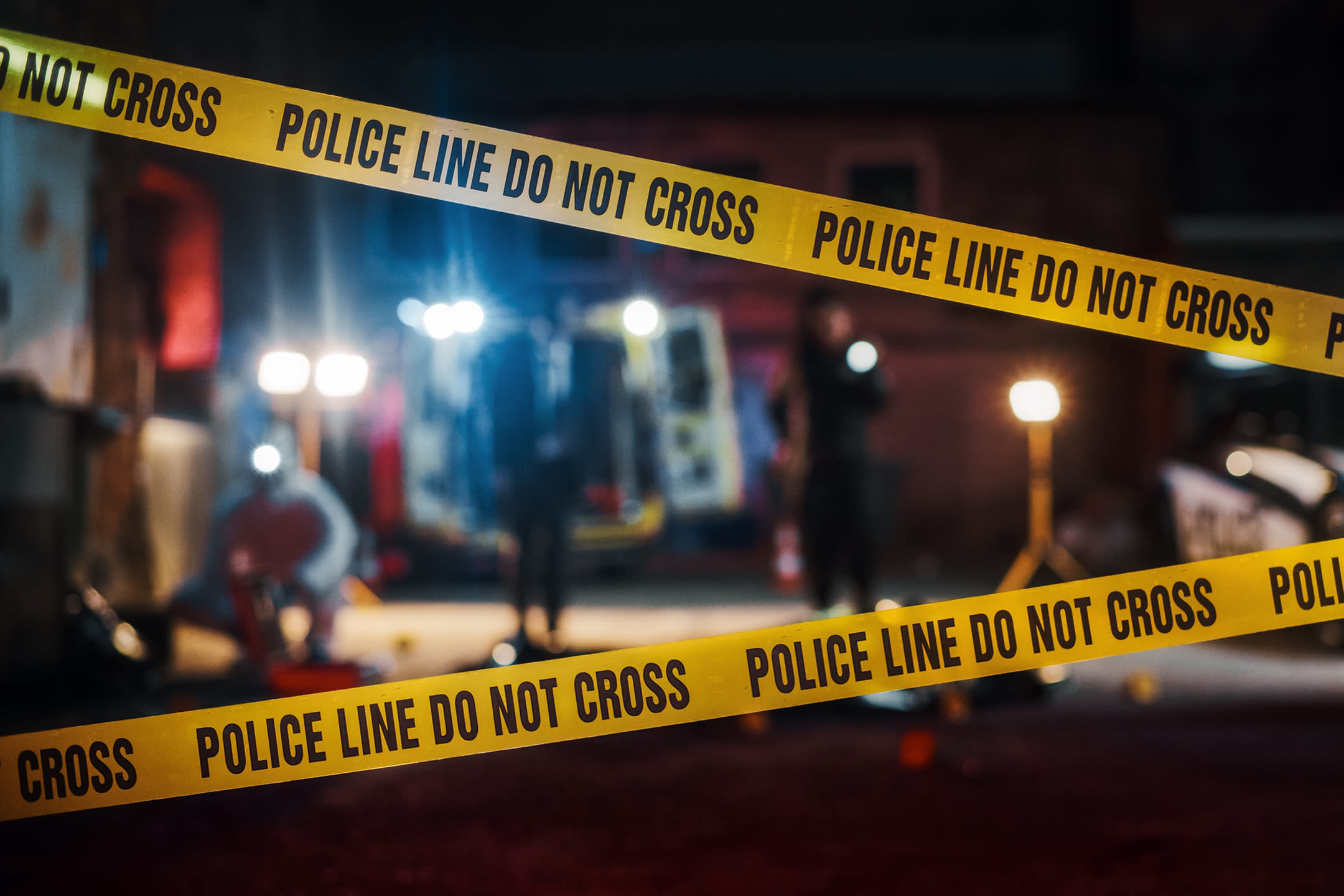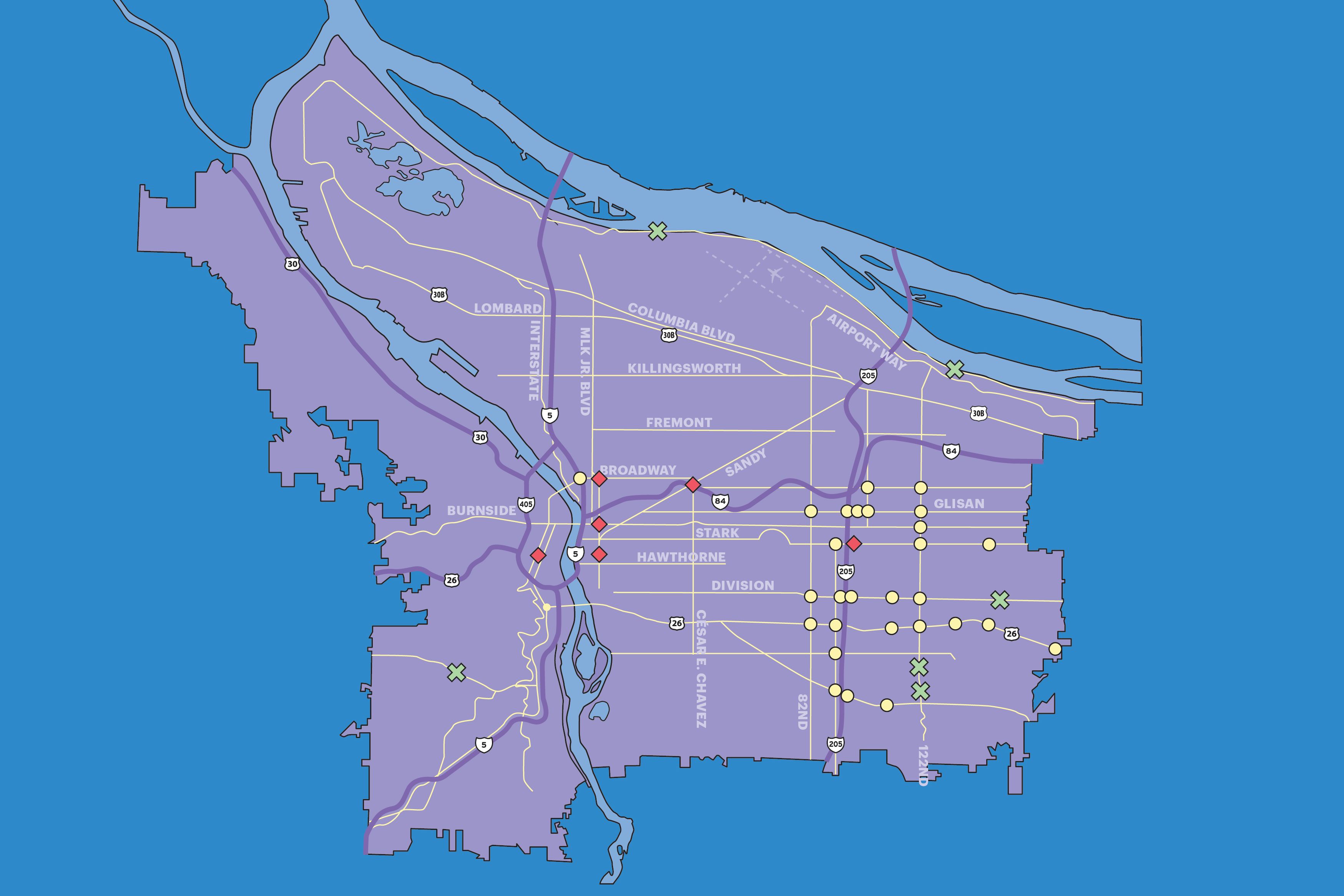What Happens When You Put the Stories of Police Officers Onstage?

Image: Alice Mollon
On a chilly day in January 2017, an unlikely group arrived at the Portland Police Bureau’s training center. It’s a massive complex near the airport, complete with a “scenario village”: an indoor mock city for tactical exercises. The visitors were local actors and theater artists, mostly black. Over the course of 12 hours, they learned how to shoot a Taser and a gun; they watched cops fire automatic rifles. They ran through scenarios: encounters with armed strangers, chaotic community disputes, combative drivers.
“What you’re presented is, like, this car just blew through two stop signs and your job is to pull them over,” recalls Lesli Mones, one of the visitors that day. “You go up, and it’s a person of color, and he accuses you of stopping him because he’s brown, and you’re faced with this really urgent situation. What does one do in the moment?”
“It was shocking to me, the level of fear [police are] faced with on a regular basis,” adds Kevin Jones, another of the visitors. “It’s a fearful situation on all sides. I just became aware of—I would shoot everybody.”
“I did shoot everybody,” Mones replies.
Jones, who is black, and Mones, who is white, are cofounders of the August Wilson Red Door Project, an eight-year-old Portland arts organization that aims to provoke conversations about race. (They’re also married.) They were at the training center that day with the cast of Hands Up, a show comprising seven searing monologues about racial profiling and police violence, told from the perspectives of people of color. Since spring 2016, that show has been Red Door’s calling card, presented more than 60 times in theaters, schools, and community centers across the city. They estimate 12,000 people have seen it (including, in the months after that training, about 50 cops).
But for nearly as long as Hands Up has been running, Red Door has had another project in the works: a second set of monologues, these from the perspectives of police officers. Directed by Jones, Cop Out premiered in late fall 2018. The monologues describe burnout, being beaten up while on duty, and deciding to fire a gun. In one, a black female cop recounts being pulled over while off-duty, terrified the white cop will turn on her. Cop Out captures the raw fear Jones and Mones experienced at the police training center, as well as anger, frustration, and grief.
“Our mission [at Red Door] is to change the racial ecology through the arts,” Mones says. “That means different parts of the ecology need to be represented, and those voices need to come into interaction with each other. And hopefully you get to solutions that have more honesty than that binary bullshit conversation.”
Cop Out began with a conversation between Jones, Mones, and Robert Day, deputy chief of the Portland Police. Day, then captain of the training division, had seen Hands Up on the insistence of a colleague. “I wasn’t super enamored with it, that’s for sure,” says Day, who is, by his own admission, “not an arts kind of guy.” But he met up with Jones and Mones, and voiced his frustration about what he saw as the show’s one-sidedness.
“I said, at some point, it would be great to tell the police story,” Day remembers. Jones and Mones said they wanted the same. “I was blown away,” says Day. “That was awesome. But I was even more surprised when they actually started to do it.”
Step one: inviting playwrights to interview cops (and take an occasional ride-along), trawling for material. “We wanted to collect stories,” Jones says. “We started out with, ‘Just tell us whatever you want to tell us.’”
Chicago playwright Shepsu Aakhu was among the first to join the project. “I’m a black male in America,” Aakhu says, “so my first question was, I wasn’t aware the police were underrepresented in their ability to tell their story. But you become aware that that has almost nothing to do with the officers’ stories themselves. The institutions have PR departments. The officers do not.”
One of the cops Aakhu interviewed was a childhood friend who detailed the strange and dehumanizing experience of wearing riot gear, which Aakhu transformed into the show’s opening monologue—a piece that, with its slant rhymes and lyrical turns of phrase, verges on spoken word.
The team ran focus groups with cops, identifying blind spots and gathering more stories. From some 20 monologues, they winnowed it to eight per performance. Many are from the perspectives of cops of color, which Jones says brings nuance. “When black cops take off their uniforms, they’re treated like any other African American on the street,” he says. “They know both sides.”
Jones is clear that his goal was never to vilify. “I wasn’t trying to put a bunch of angry, white, violent, racist cops onstage,” he says. “My experience is that there are bad cops out there, but for the most part, they’ve got a hard job and are oftentimes ill-prepared. I was more interested in that story.”
As with Hands Up, Jones and Mones facilitate talkbacks with the audience after every performance, and the production has no fixed run—Red Door books shows when organizations or individuals reach out. (The company posts upcoming performance dates online.) Thus far, Cop Out has played at locations as varied as the Hollywood Theatre and Self Enhancement, Inc. Jones and Mones have their eyes set on a national tour, and ultimately want to make it available for others to mount.
When Jones first told people about Cop Out, some accused him of Stockholm syndrome. “I thought it was kinda funny—truth,” he says. “But that is kind of what we’re purporting, the notion that once you get to know someone, things change.”




